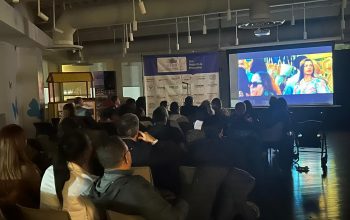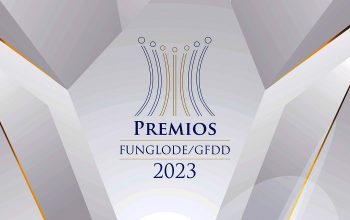news
Lecture on Economic Stabilization Policy in the Dominican Republic
April 5, 2006
 The Senior Analyst and Director of the Latin American Country-Risk Department of The Economist Intelligence Unit (EIU), Robert Wood, highlighted the economic recovery recently achieved by Dominican Republic, which he attributed mainly to the successful implementation of
The Senior Analyst and Director of the Latin American Country-Risk Department of The Economist Intelligence Unit (EIU), Robert Wood, highlighted the economic recovery recently achieved by Dominican Republic, which he attributed mainly to the successful implementation of
stabilization public policies by the Administration of Leonel Fernández. Mr. Wood stated that these policies have recovered the confidence in the economy and have enhanced the entry of capitals to the country. He made his presentation in the "Dominican Republic: challenges for 2006-2007" Lecture, held in FUNGLODE’s auditorium in Santo Domingo.
The British analyst pointed the positive impacts of the fiscal reforms and the agreement with
the International Monetary Fund (IMF) over the recovery of the Dominican economy, in the context of successful policies implemented by the Fernández Administration. He also stated that confidence recuperation, the capitals come back, prices and exchange rates stabilization, and the accumulation of international reserves, are all consequences of the policies being implemented. He added the external debt restructure,
which has also made possible other benefits for the country, as the reopening to the international capital markets. Mr. Wood reminded the audience that another effect of this recuperation is the US$300 millions recently gained by the country to renegotiate all debts with Unión FENOSA.
Wood also pointed that the improvement in public finances is also a consequence of the effective public policies being implemented by the Fernández
Administration.
During his presentation, Robert Wood discussed the unemployment rates in the Dominican Republic, arguing that although they have recently decreased, they’re still too high. He alerted about the need to improve economic conditions of a wide segment of society.
For this Economist, there are so many challenges to face. The main challenges that Dominican Republic faces, according to Wood, are the quest for an effective solution to the Central Bank quasi-fiscal deficit, the new fiscal reform needed by the system, and the absorption of external shocks, as oil prices. In order to deal with them, he emphasized the importance of keeping up with adequate economic policies; coherence and discipline as key elements; consolidation of fiscal reforms, among others.
In his lecture, Wood also discussed the Dominican Republic and Central
America Free Trade Agreement of with United States (DR-CAFTA), which will force local companies to compete in a new scenario and will eventually have an increment in imports, with the following pressure over the value of the Dominican Peso.
Alexander Banks, Director, Business Development for Latin American, The Economist Intelligence Unit, preceded Wood in his presentation. Frederic
Eman-Zadé, Director, Fundación Global Democracia y Desarrollo (FUNGLODE), formally presented both guests.
This is the second time Robert Wood speaks at the FUNGLODE auditorium, and he reminded the audience that in his previous presentation, last year, Latin American countries were growing fast but Dominican Republic wasn’t having the same luck. He said, however,
that thanks to the effort made by this Administration, the country is now a regional example of economic recovery.
Robert Wood approached the economic challenges to be faced by Dominican Republic in 2006-2007 from several perspective





